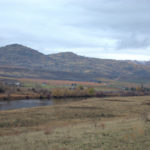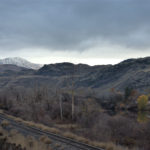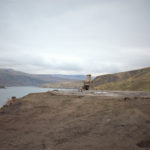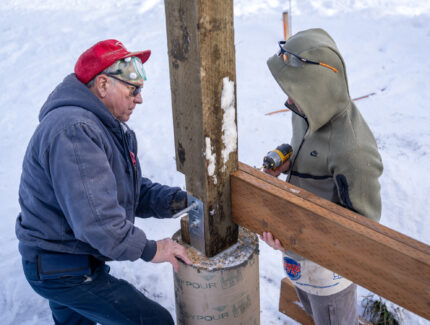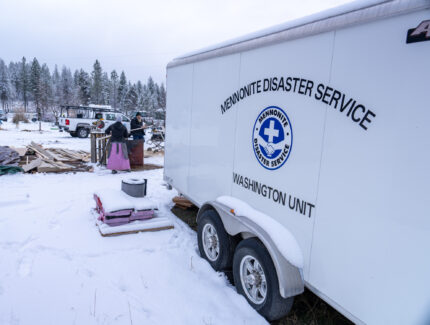
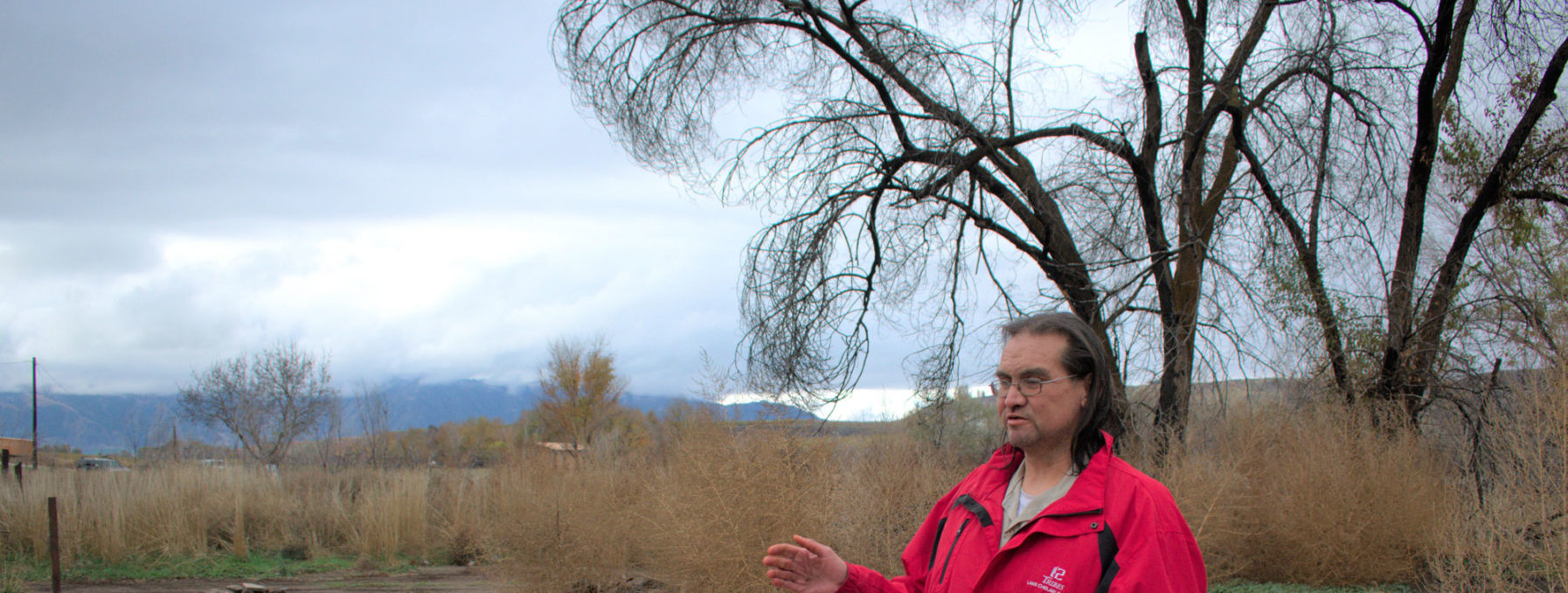
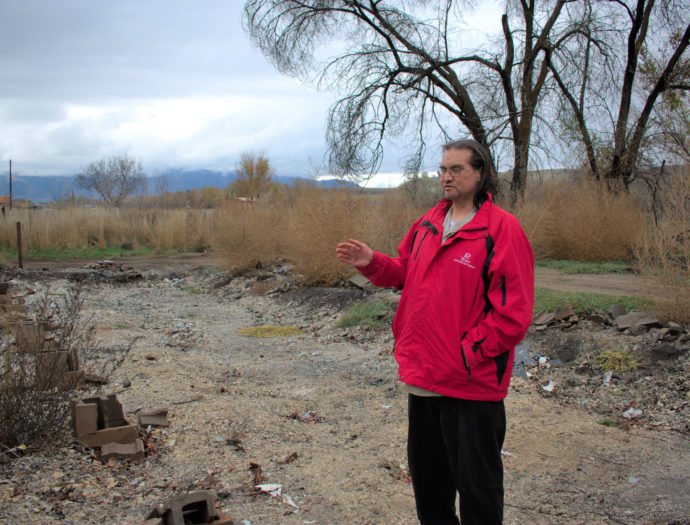
January 12, 2022
In Colville Native American community
Our people have survived a lot
When a wildfire raged too close, James McCraigie tried to grab his three dogs and get out. He managed to take two—He-man and Bobby—as his third dog, Teala, hid under McCraigie’s mobile home. “I just kept my fingers crossed it was going to miss her and miss the house,” he recalled.
He lost both. In September 2020, the Cold Springs Fire in Okanogan County, in north-central Washington, burned 189,923 acres and 78 homes, in addition to the uncountable, heartbreaking losses like Teala.
A member of the Confederated Tribes of the Colville Reservation, McCraigie has been living in his car with He-man and Bobby. His dogs are his family.
Although McCraigie is high on the Okanogan County Long Term Recovery Group priority list, he is still waiting for a home. He lives on reservation land, but it’s also, he said, “McCraigie land,” he said. “I don’t know how long we owned it, but it is ever since I’ve been little.”
He considers the fire a test. “It is just a test in how I can I be a grown-up and get through it,” he said. “It is pushing me in the right direction that I was wanting to go in in my mind, heart, body, spirit, and soul, to be a better human being.”
This disaster, for McCraigie, is an opportunity for change. “You know, I do not really see the negative, I see the positive,” he said. “Because humankind—we have been going through change and we are going to continue to go through change.”
Now 50 years old, McCraigie said he’s going to take the future as it comes. “I am just trying to be a better human being,” he said. “I am already preparing for when I get across over to the other side.”
Looking back, McCraigie has lost a lot of family members to various illnesses and other disasters. “My mom was half Cherokee; my dad was full-blooded Colville,” he said. “Then I got blood from clear over Europe because my grandpa on my mom’s side was white.”
He’s proud of all of it, he said. “All our people, we have seen a lot of stuff—all up-and-down,” he said. “Every part of this land, there are stories.”
“You know, I do not really see the negative, I see the positive, because humankind—we have been going through change and we are going to continue to go through change.”
— James McCraigie, member of the Confederated Tribes of the Colville Reservation
He knows he’s not the only only person who lost his home, and he’s happy for those who were able to save theirs. “I always did understand but now I really understand it when people lose homes to natural disasters, like New Orleans when they went through Katrina,” he said. “You know, I had to go through it.”
Now holding down a job, he recalled the days when he was unemployed and walked away from crystal meth in December 2016. “I knew I could be better and be a grown up,” he said. “So, I walked away from it and now this is just another test for me to keep continuing.”
But he misses Teala. “She was just one year old,” he said. “I used to call her Teala Weala.”
He knows he can’t live in his car forever. “Vicki, my friend, I go to her place—she has always told me ‘any time you need a place you come down here,’ ” he said. “My cousin Richard, I can go up there, and I got other family if I really do have to.”
McCraigie said the Okanogan County Long Term Recovery Group is doing whatever it can to help him. Mennonite Disaster Service and other organizations are recruiting volunteers to help rebuild homes for fire survivors in the area.
“I told my long-term recovery group case manager that I just started feeling how I am missing a home,” he said. “Right now, I am just being strong, and being like this, I am just more concentrating on the work and that has helped take my mind off this.”
He runs laps, checks Facebook, and uses Photoshop to edit photos. “And then I got XM radio, and I listen to sports on there and stuff like that,” he said. “I do not know what the future holds, but whatever it holds—it’s going to be okay with me.”
The history of his family and his people—all of them—helps gives McCraigie the courage to keep going. “Our people have survived a lot,” he said. “There has been worse stuff than this, and people have overcome it.”
Photo Gallery
